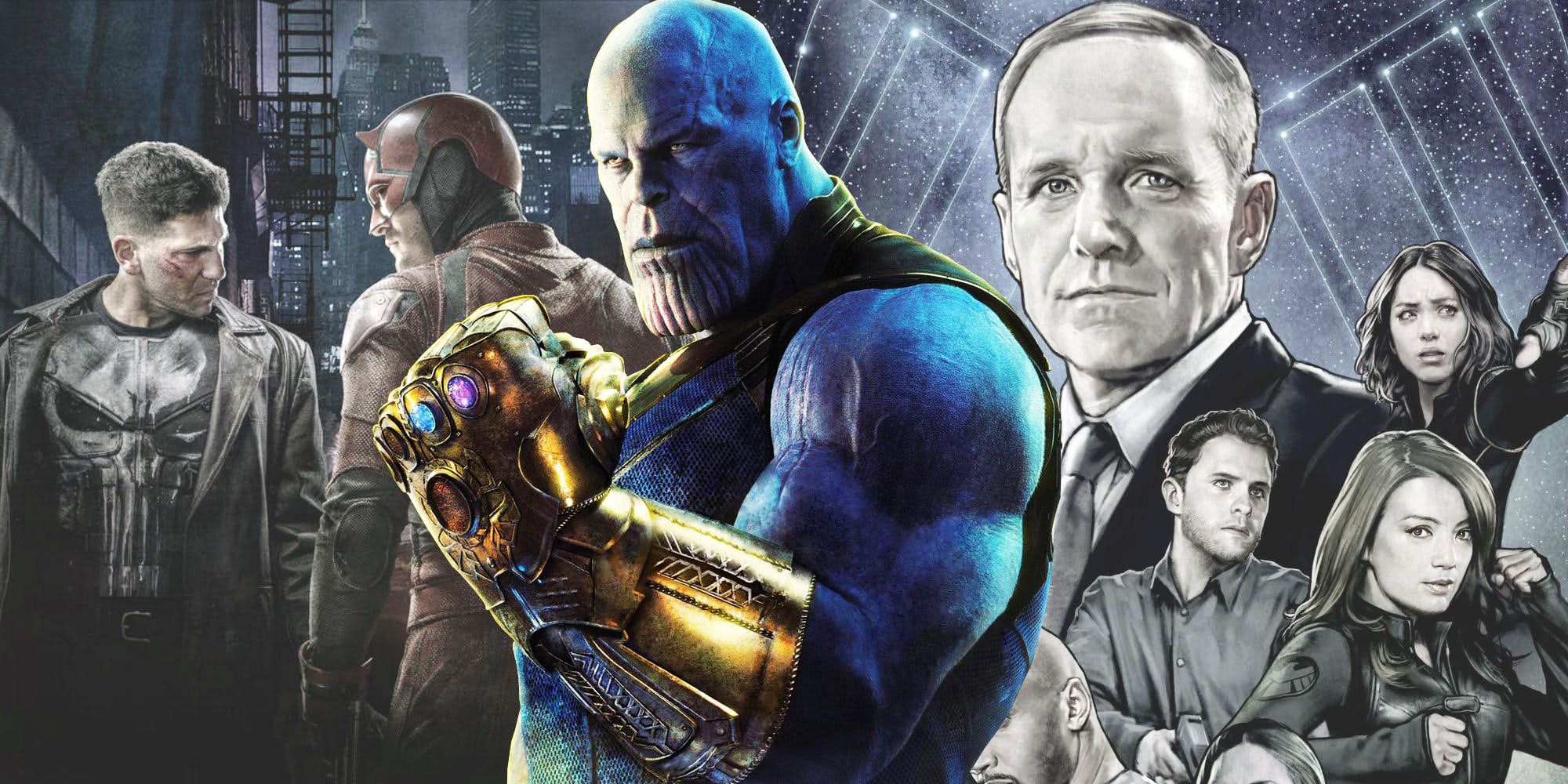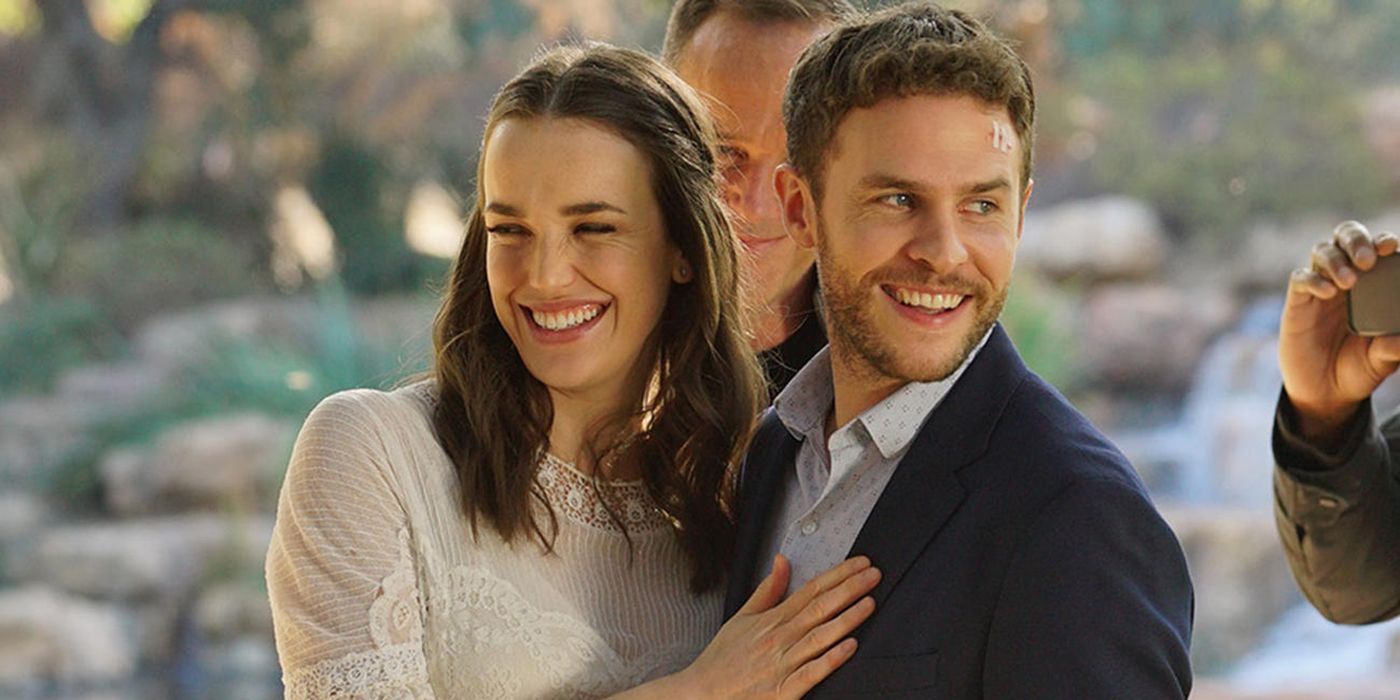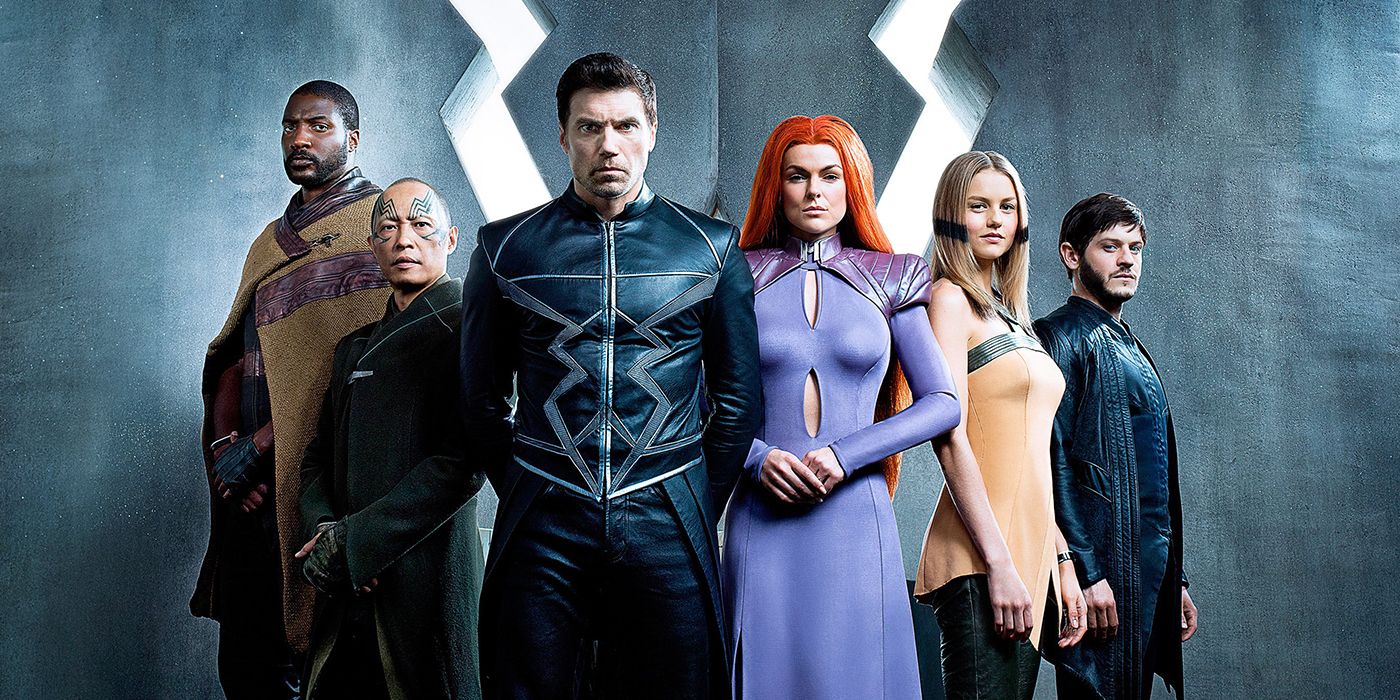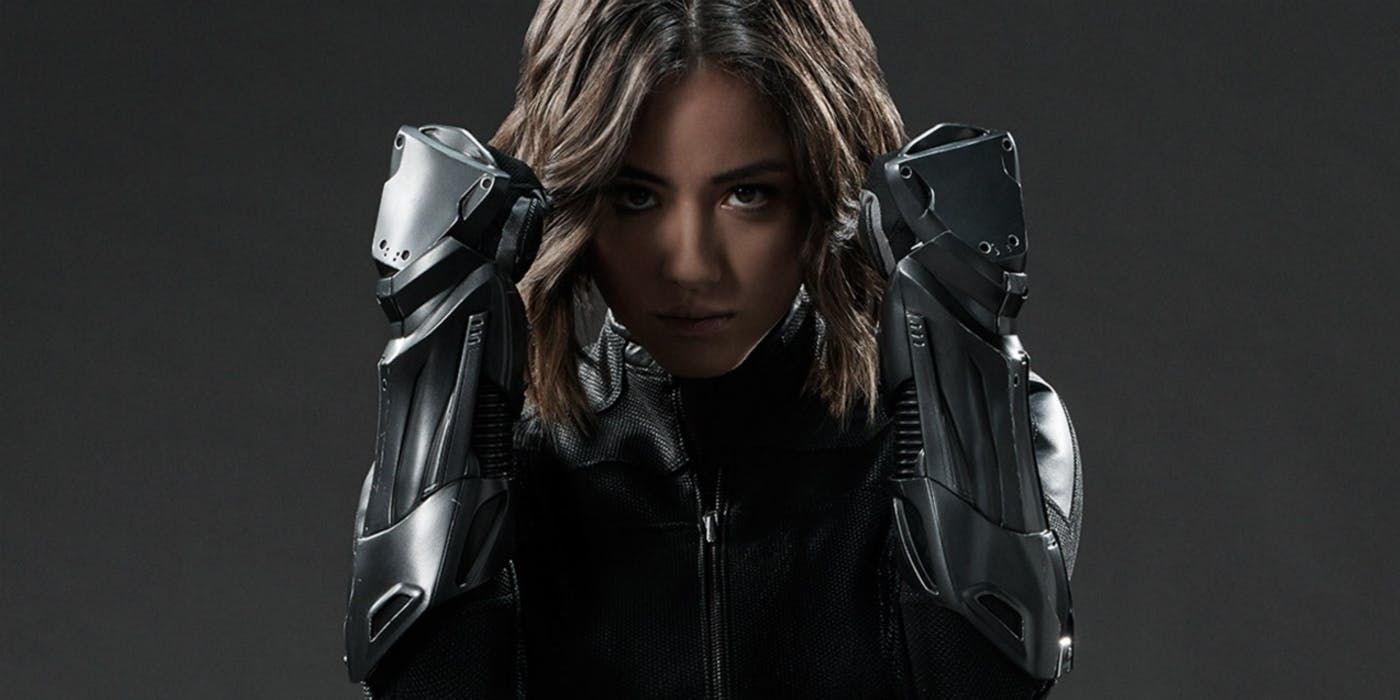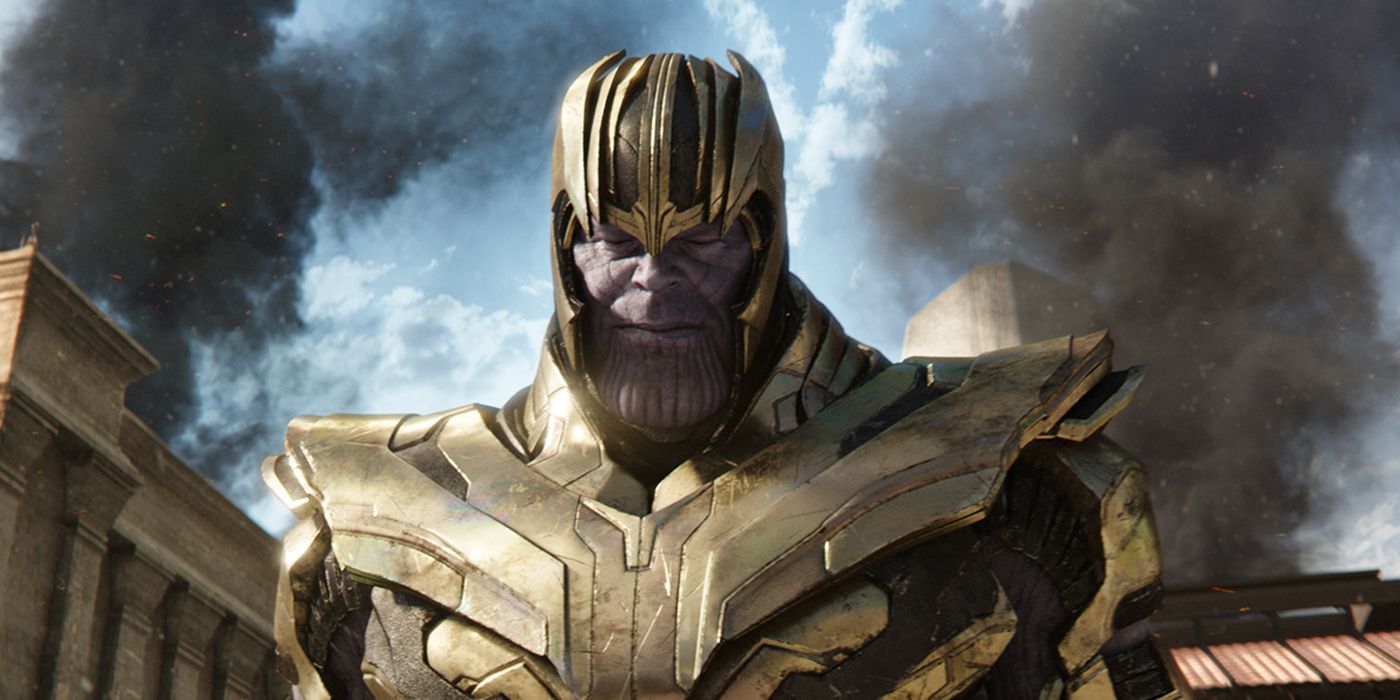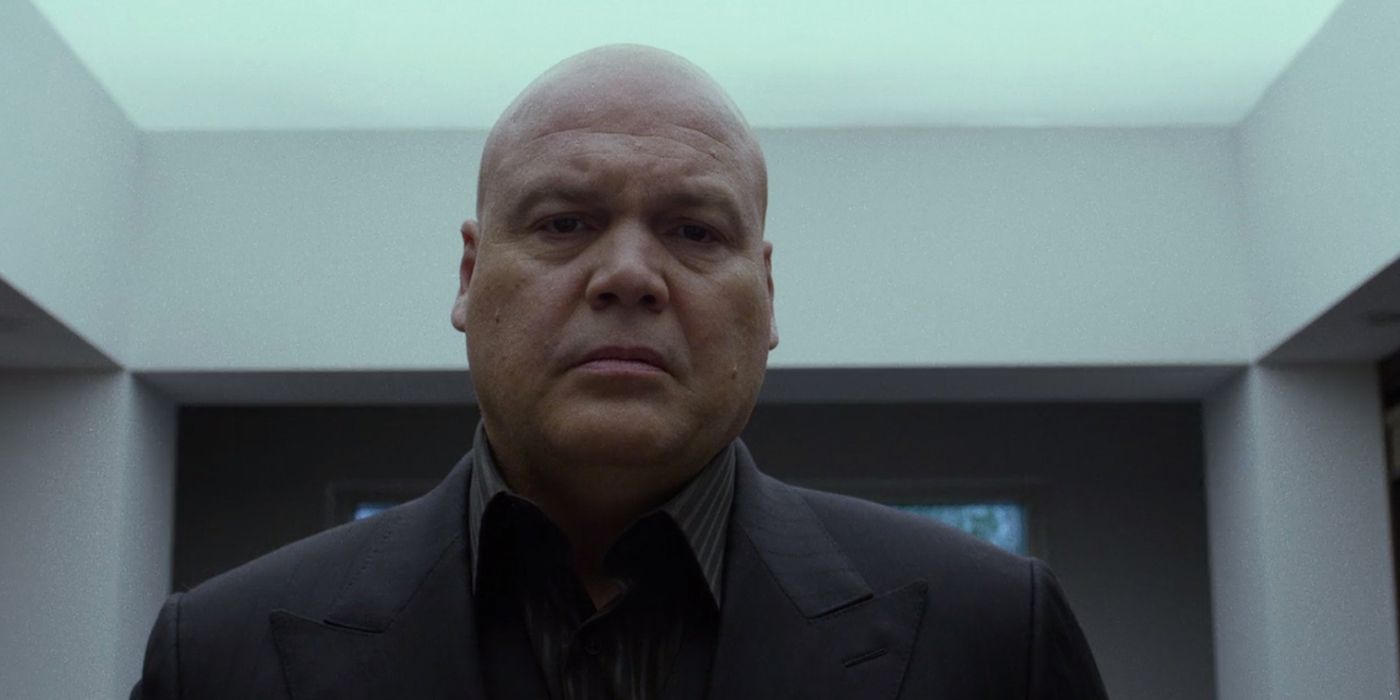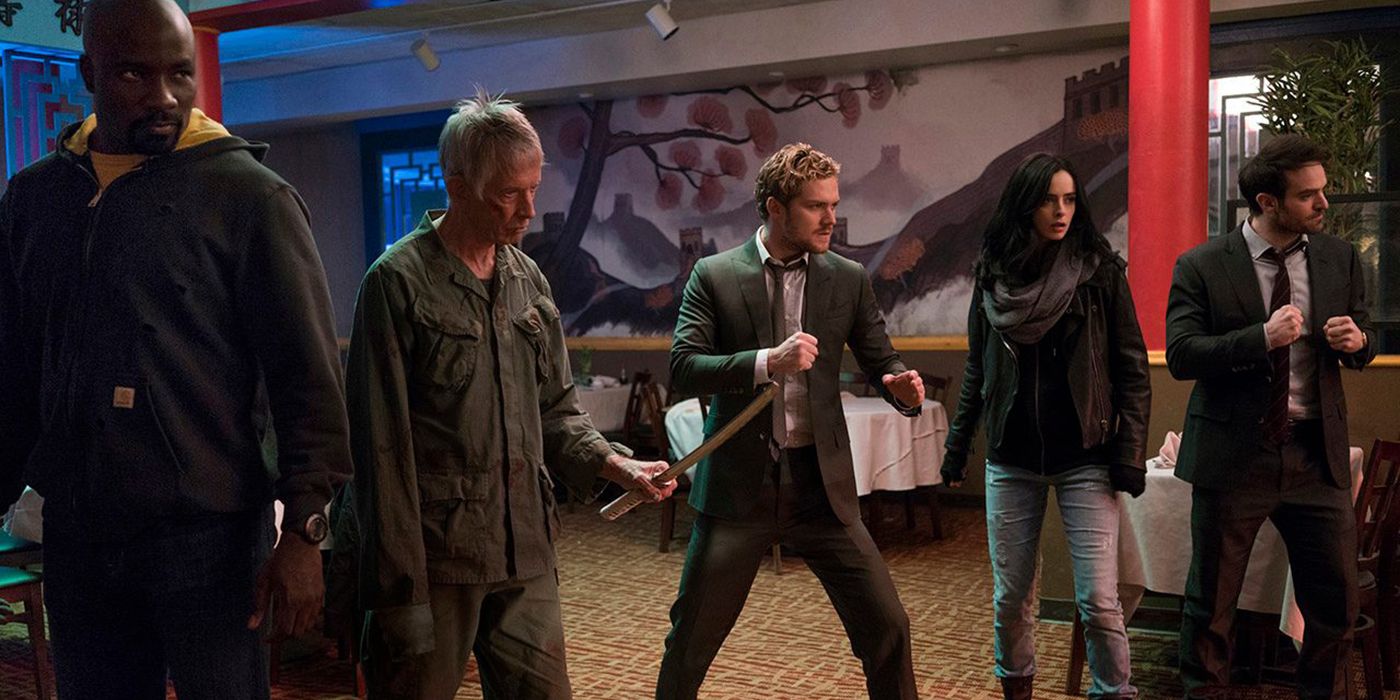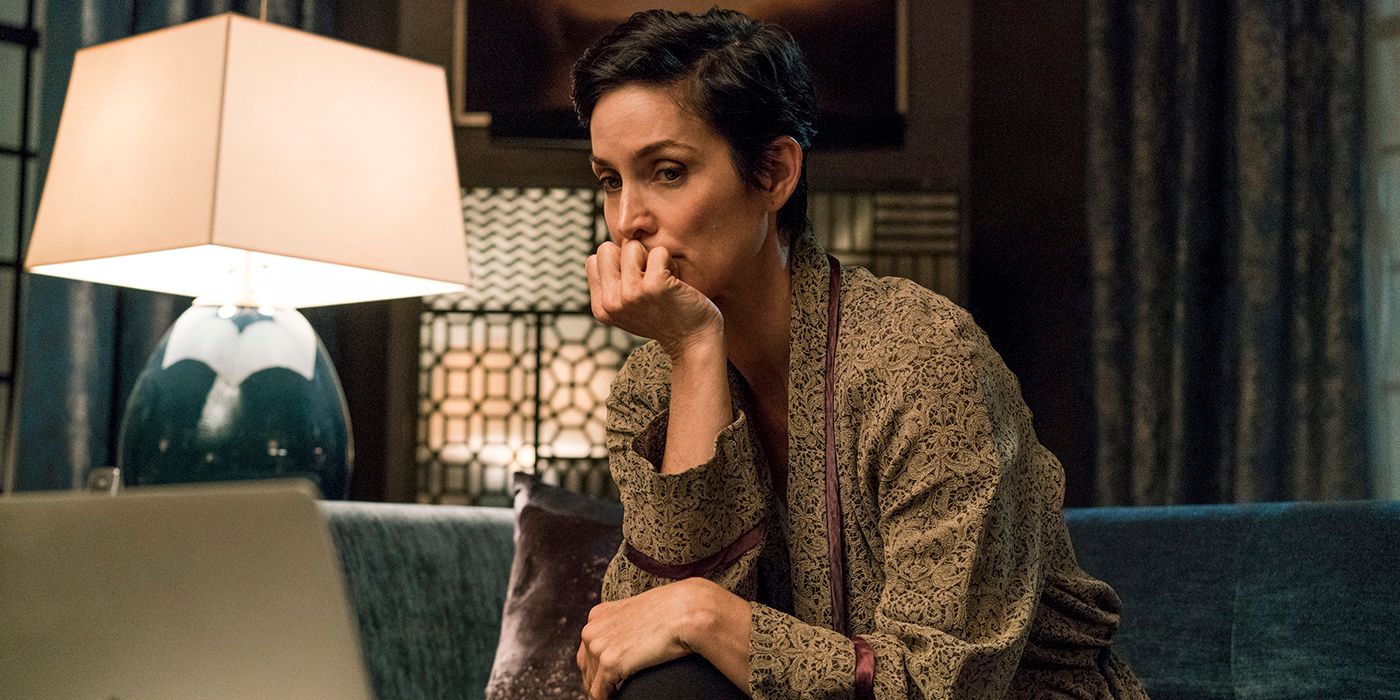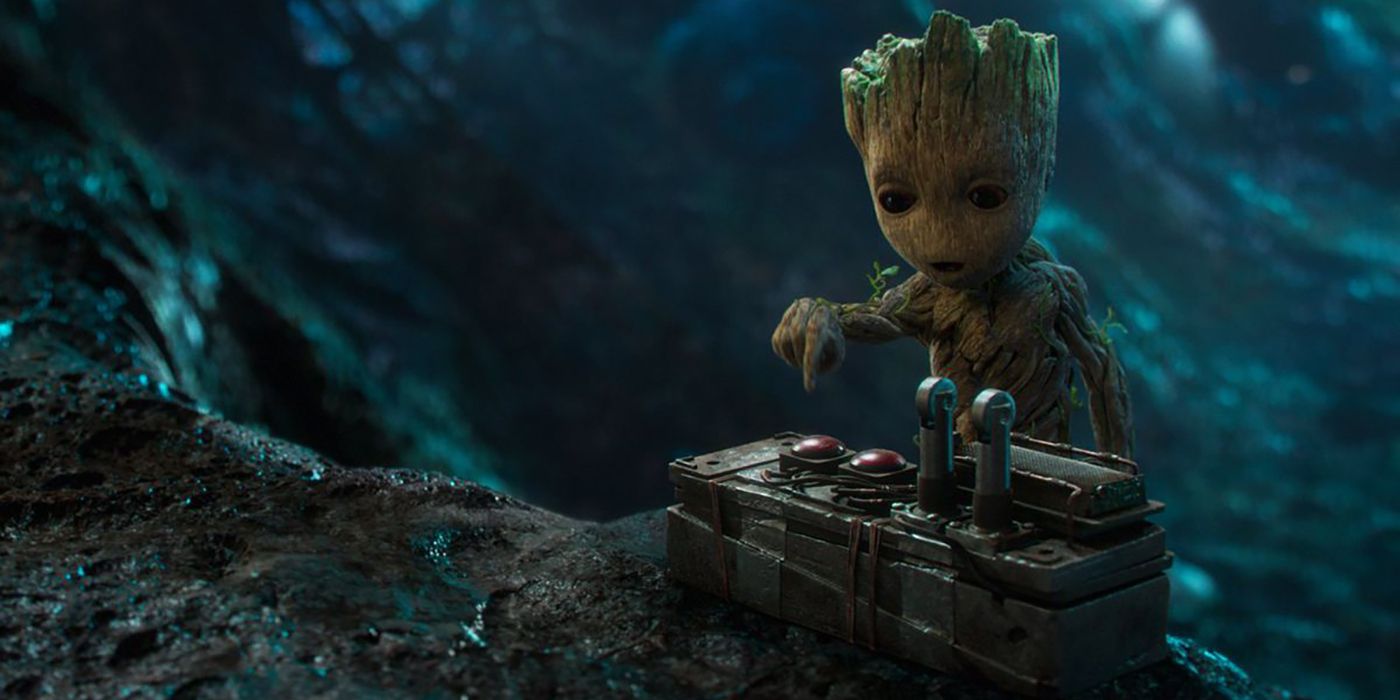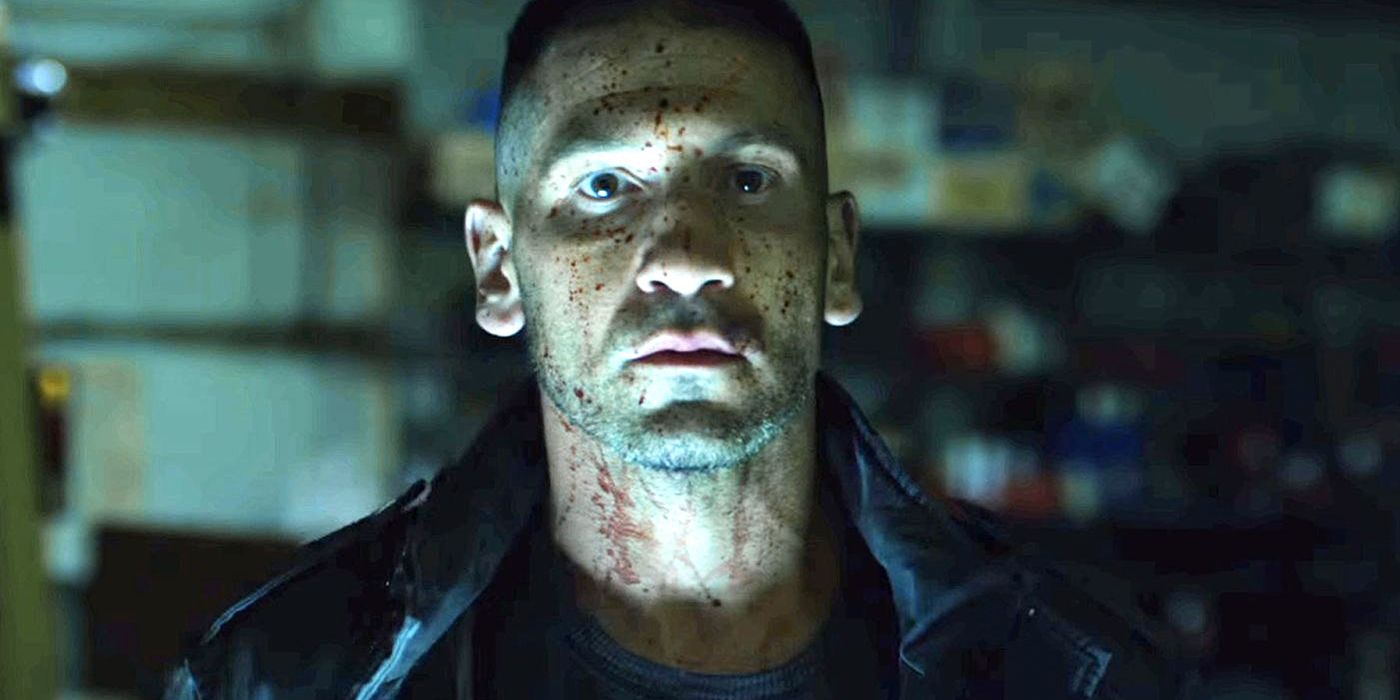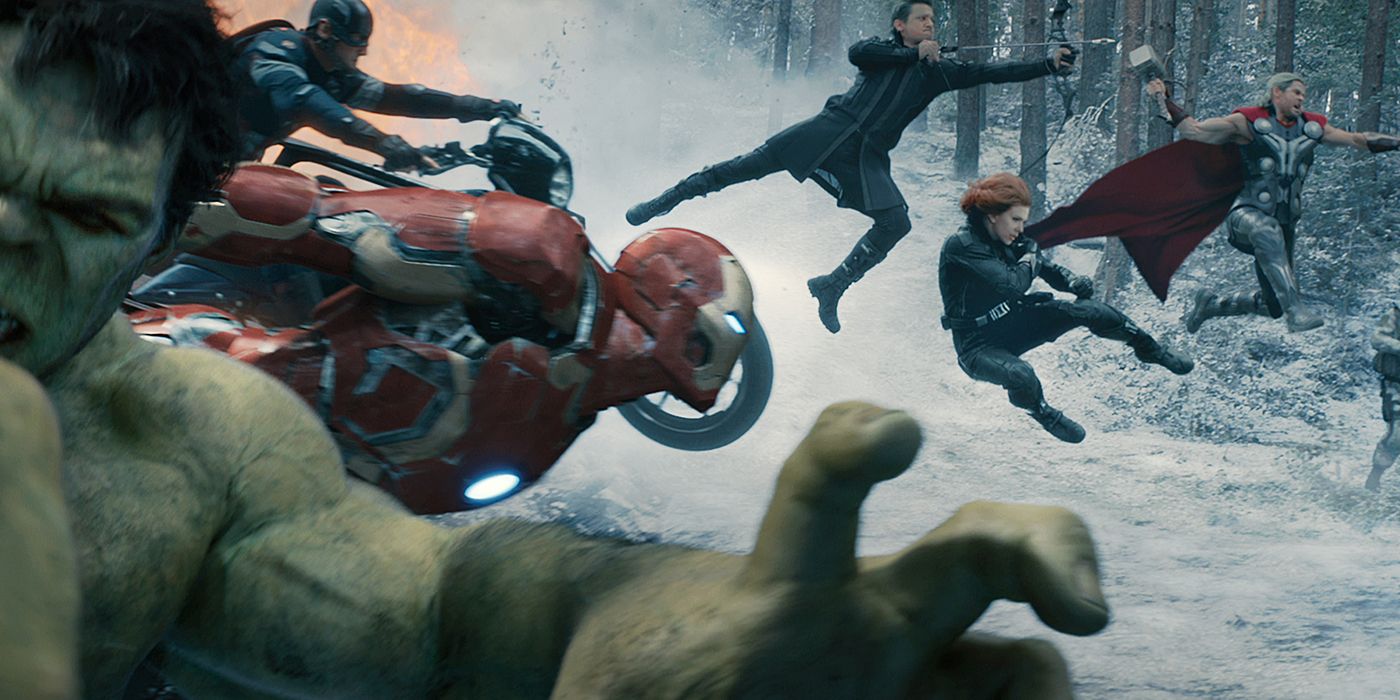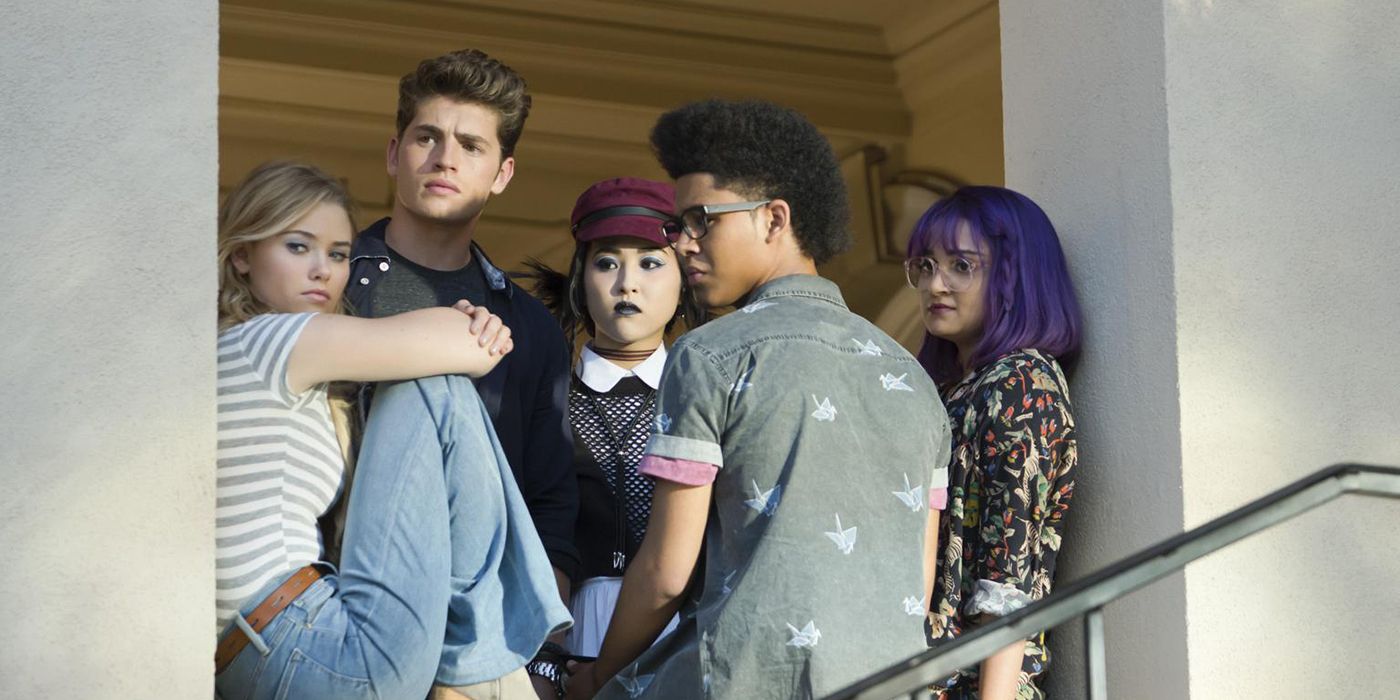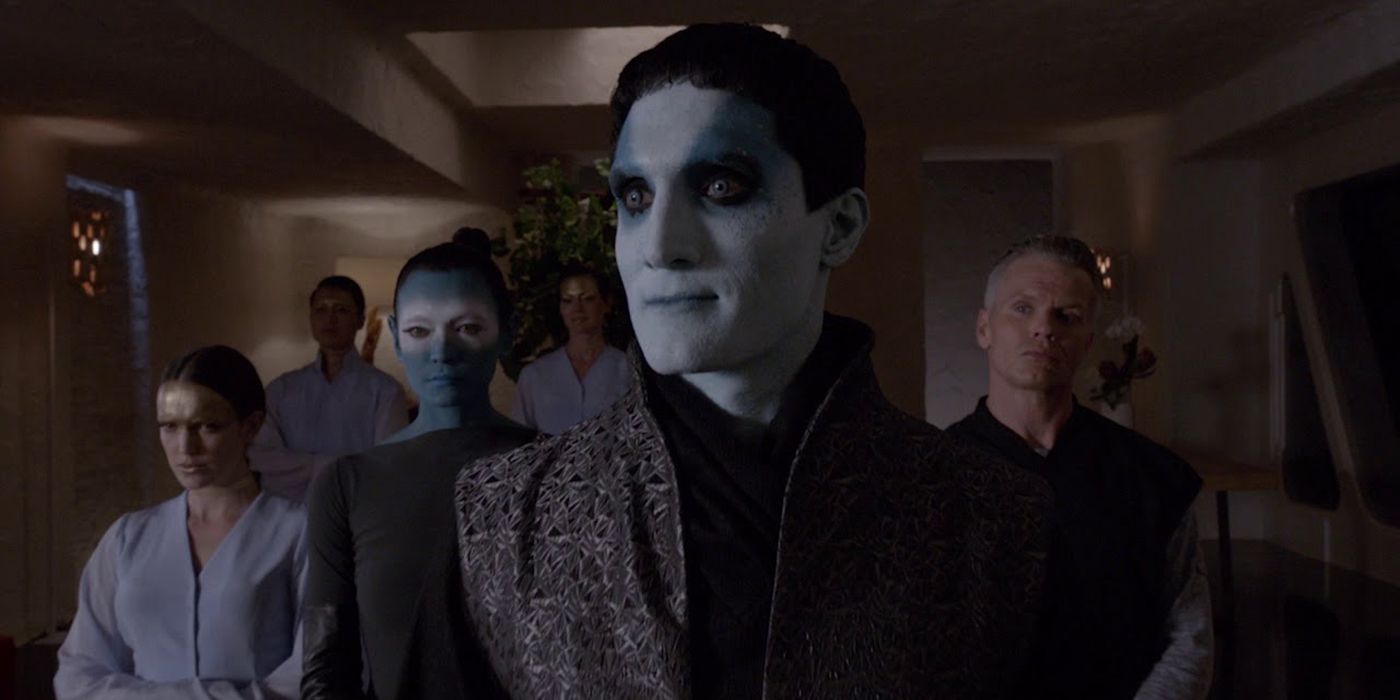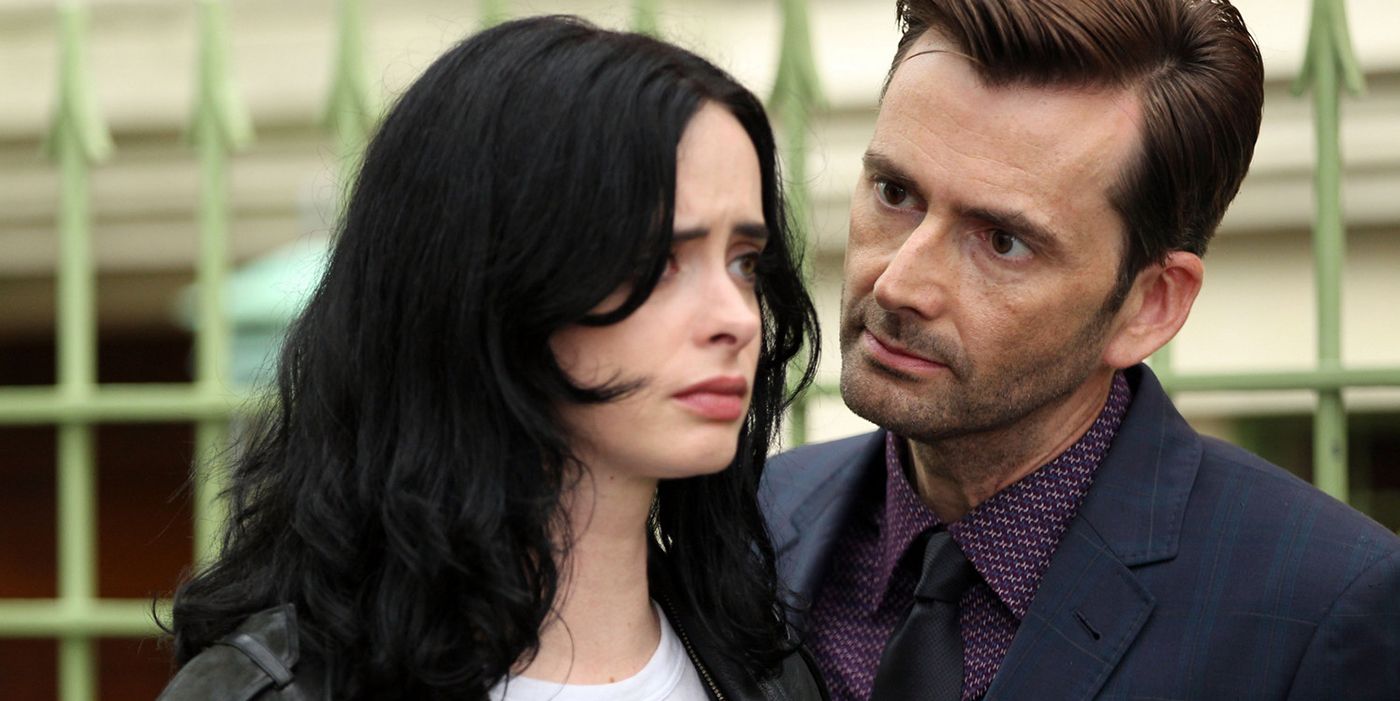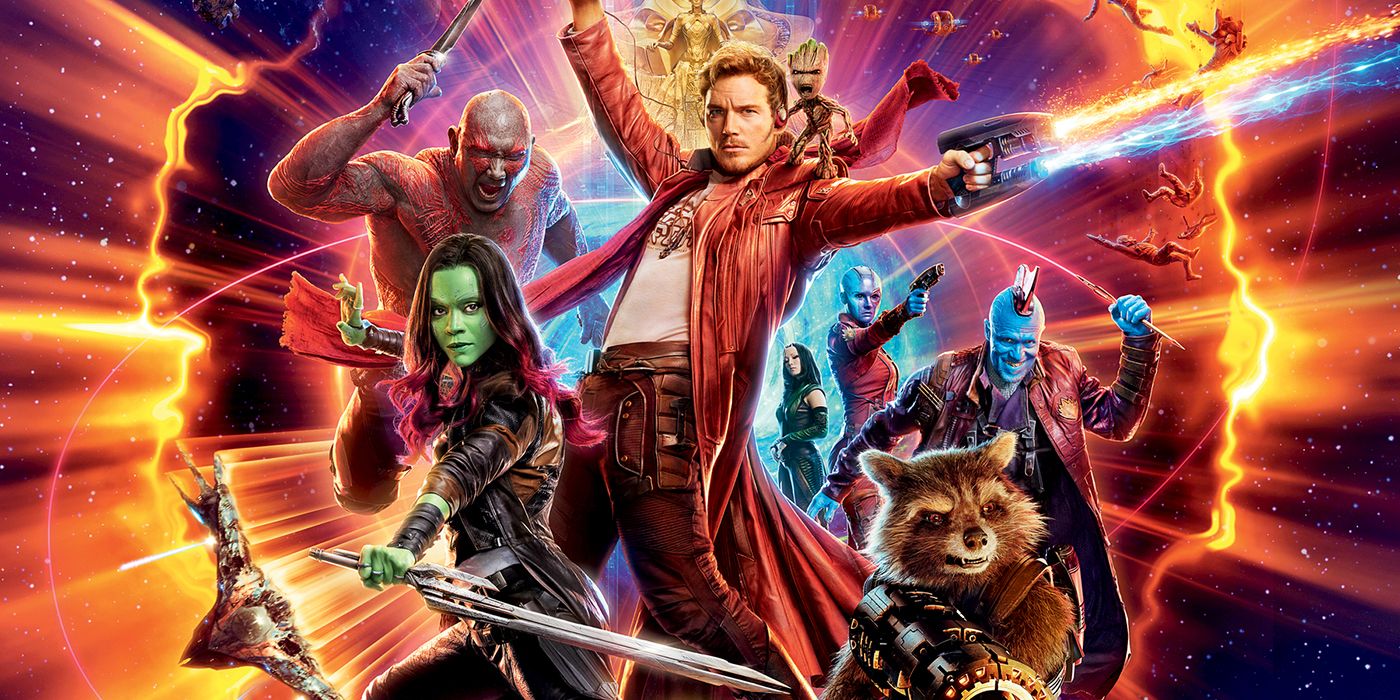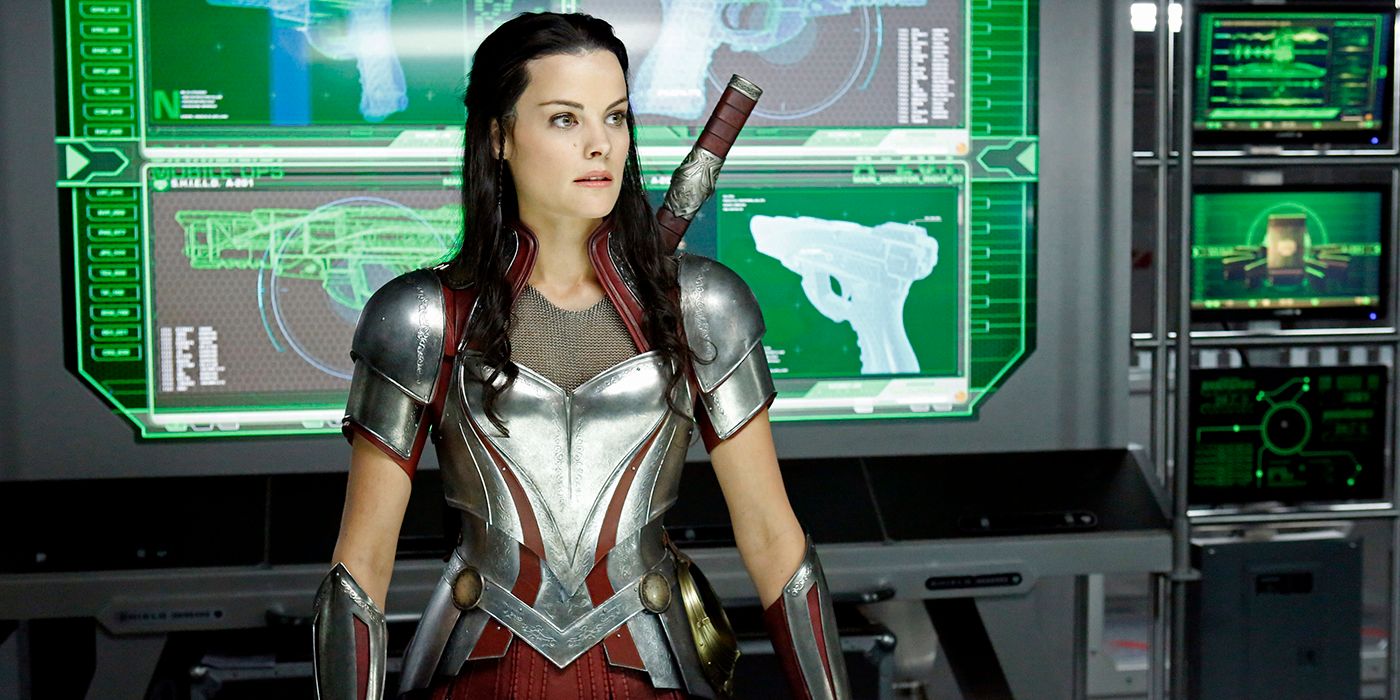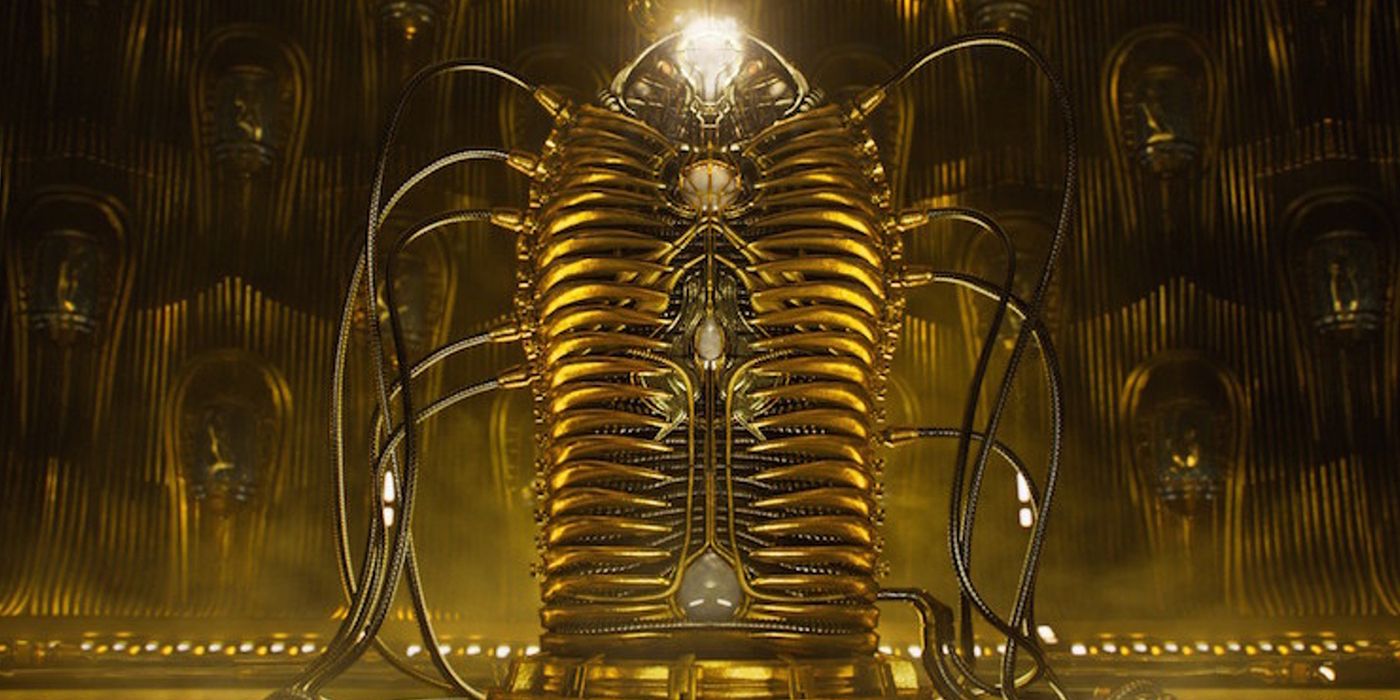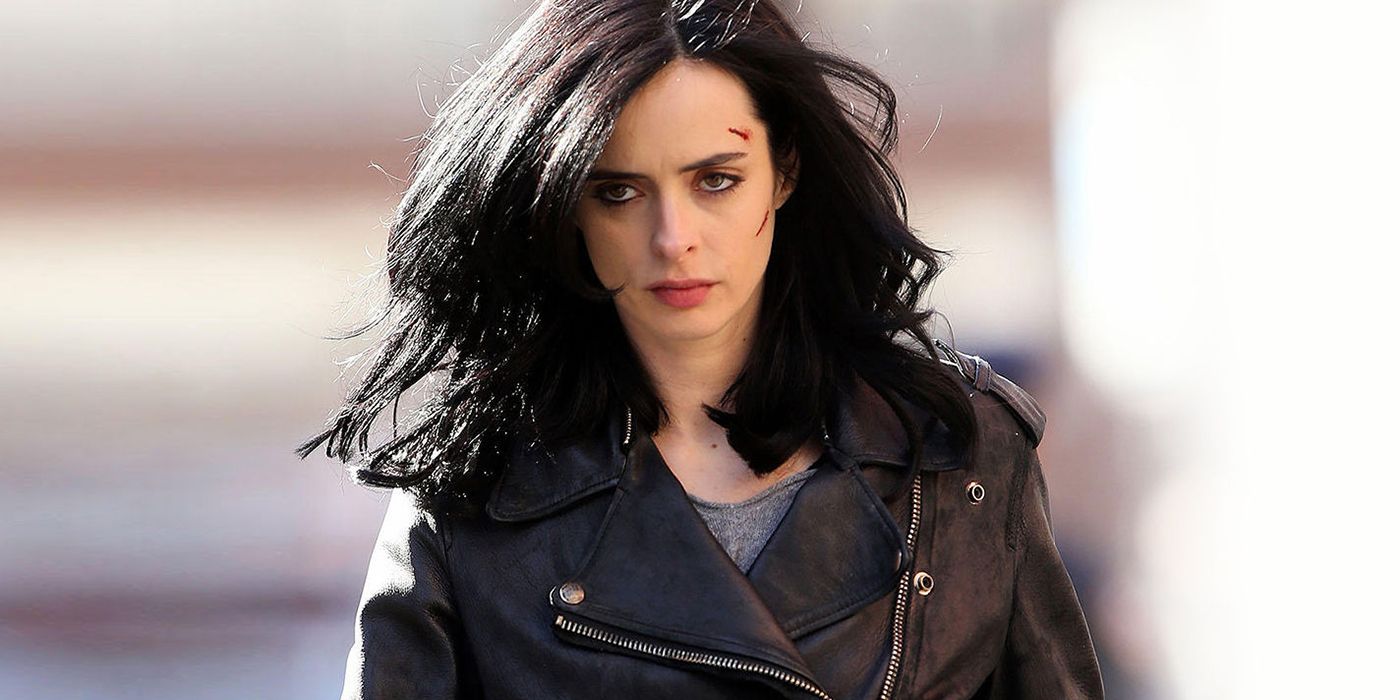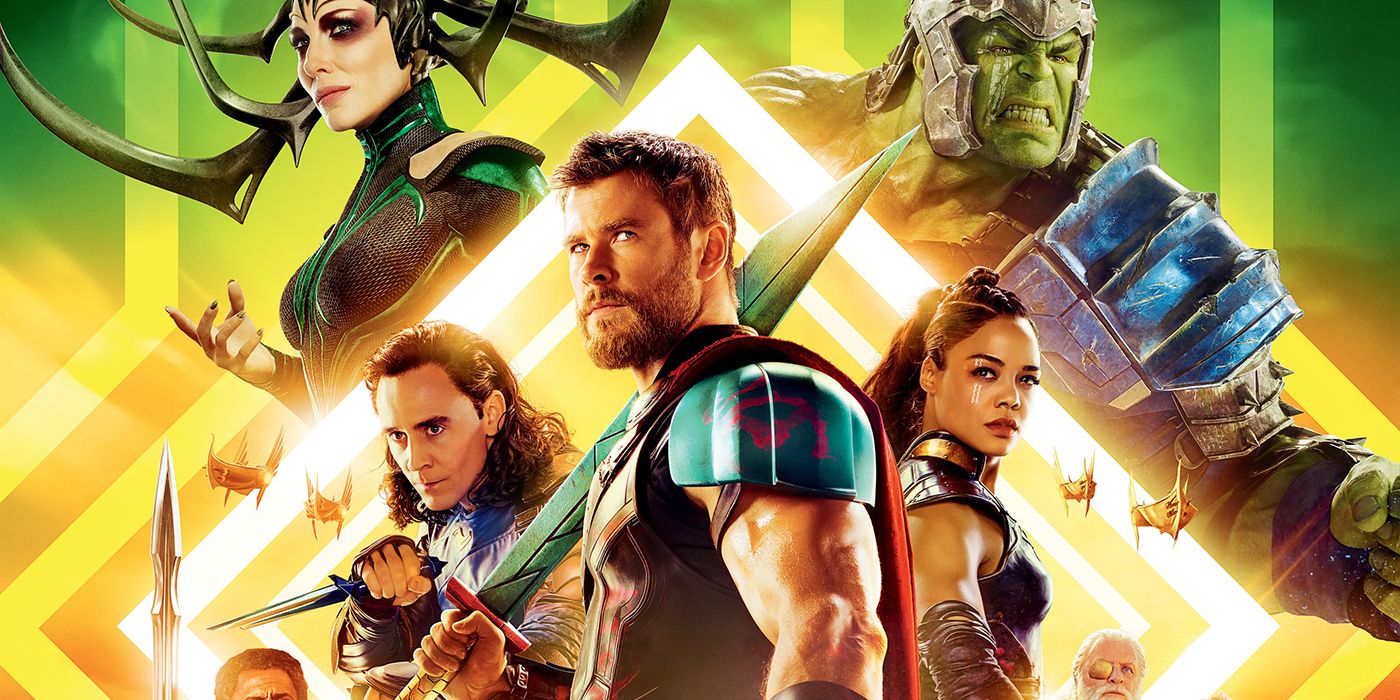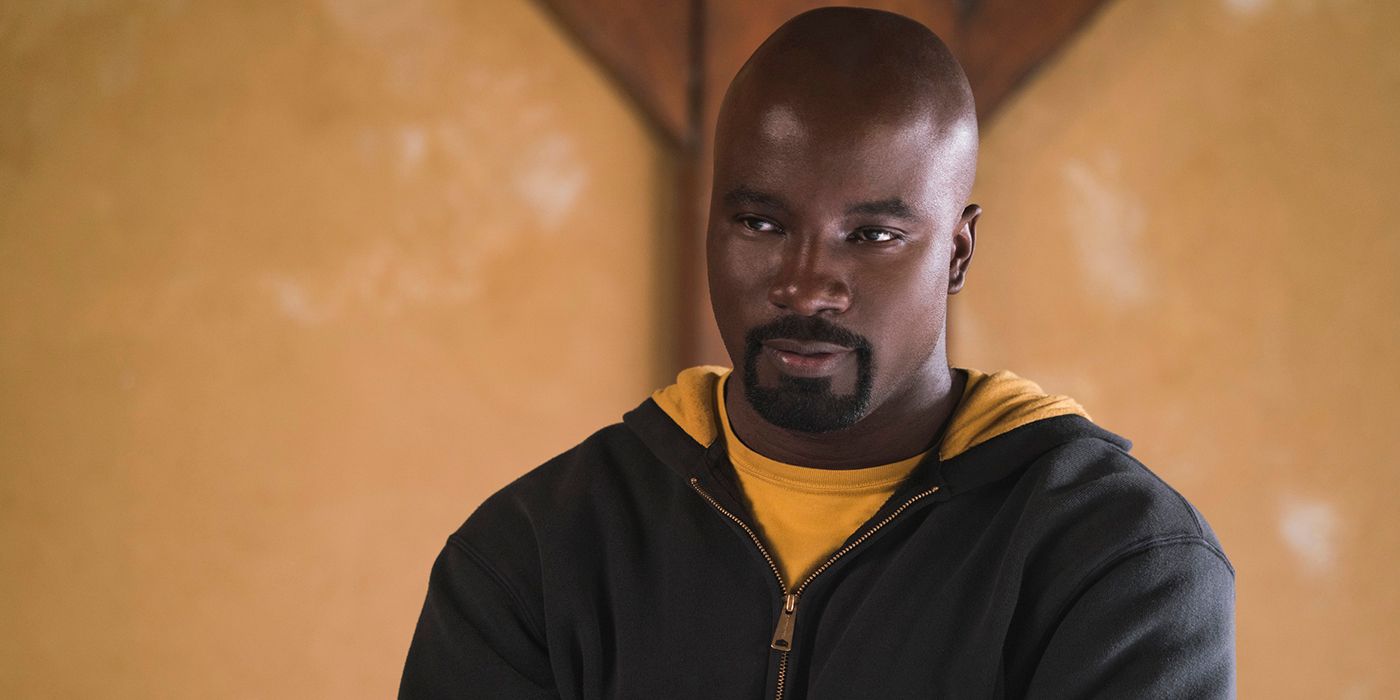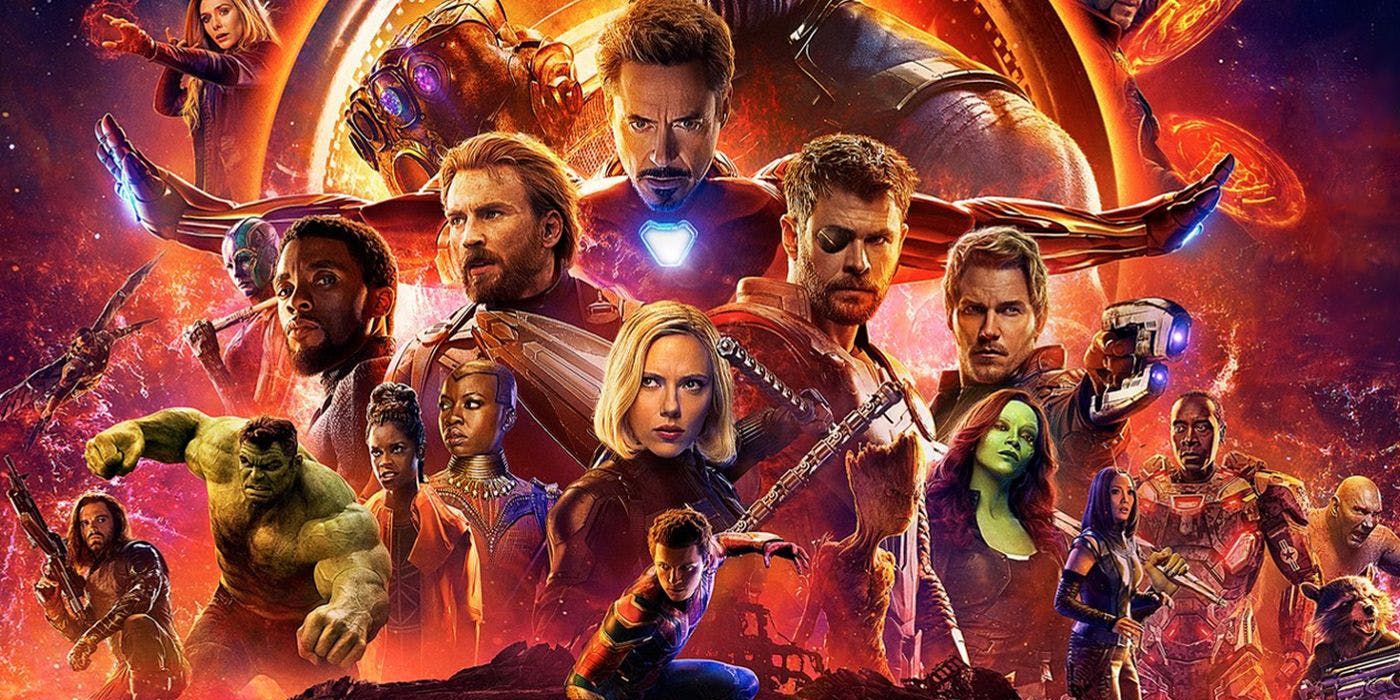In the Marvel Cinematic Universe everything is connected. The events from the movies carry over to the television shows and vice versa... or do they? It's become a running gag that even though Marvel execs love talking about how everything is connected in the MCU, there are basically two fractions to this shared universe that never really crossover with each other in a meaningful way. On one side, there's the movie universe -- the Avengers, the Guardians, Thanos and the whole shebang. On the other side, there's the television universe -- the New York gang on Netflix, the teenage superheroes of Runaways and Cloak & Dagger, and the S.H.I.E.L.D. Agents struggling to keep everything from falling apart. The TV shows rarely come into contact with one another and even more rarely with the movie universe.
After ten years, Marvel's movie and TV universe are still strangely divorced. Not only because the two don't crossover, but because they are essentially different. The TV shows are darker, the movies are more about spectacle, the TV shows are about lesser-known characters, while the movies mostly feature big superhero names. These are just some of the differences between the MCU movies and television shows. You may prefer one or the other, or you may like both equally, but each have its qualities. We decided to take a closer look at what MCU TV does better than the movies and what it does worse in order to try to figure out what makes each of these so successful.
20 BETTER: RELATIONSHIPS
Relationships -- both friendships and romances -- require time to develop properly. Naturally, a story that is told in the longer television format has more time to spend on building meaningful connections than a two, two-and-a-half-hour movie. The MCU films have often been criticized for poorly developing romantic relationships, see: Natasha Romanoff and Bruce Banner or Steve Rogers and Sharon Carter.
On the other hand, MCU’s television division has never had problems with developing compelling relationships. Hands down, Jemma Simmons and Leo Fitz from Agents of S.H.I.E.L.D. are the MCU's best couple. The most recent MCU TV show, Cloak & Dagger is slowly but surely developing a compelling relationship between Tandy and Tyrone.
19 WORSE: COSTUMES
Overall, the Marvel Cinematic Universe is doing a great job when it comes to costumes. There are, of course, ones that didn’t quite live up to expectations, but a great number of costumes unexpectedly surpassed our expectations. Most of the movie characters have insanely good costumes, like Iron Man, Spider-Man, and Black Panther.
However, the TV costumes haven’t always hit the mark. A stark example of misguided costumes is every single costume from The Inhumans. Luke Cage’s Dimondback was also quite a letdown, Daredevil needed to be much better, and, of course, who can forget about Deathlok’s plastic laser tag vest.
18 BETTER: CHARACTER DEVELOPMENT
One of the so-called secrets to the MCU’s success is in telling character-driven stories. Thanks to the amazing writers and directors at the helm of Marvel’s movies and television shows characters are able to change and grow. However, as good as the movies are with developing their characters, they don’t come close to what the television series are capable of achieving.
It all boils down to having more time to tell smaller stories and allow the characters to go through believable development at a slower pace. Marvel’s TV shows excel at writing and developing compelling and relatable characters. Agents of S.H.I.E.L.D.’s Skye, Fitz and Simmons all had well-written character arcs that made them adapt, change and grow.
17 WORSE: HIGH STAKES
Saving the world is one of the most commonly used tropes in the superhero genre. Most of the time, our heroes manage to prevail against all odds and stop the mad man who’s trying to either take over the world or end it altogether. But this trope usually works better in movies than in TV shows.
When the Avengers are saving the world from an alien invasion or the most powerful being in the entire universe you feel the suspense and threat of impending doom. Yet, when television shows do these end of the world scenarios, it’s hard to take them seriously because they happen every so often and lose all gravitas they might have had. Smaller stakes work better for TV.
16 BETTER: VILLAINS
Up until very recently, the movie division of the Marvel Cinematic Universe was constantly under fire for having villains that are average at best. Thor: The Dark World’s Malekith and Iron Man 2’s Whiplash are usually cited among the worst MCU villains. On the other hand, MCU’s television series are almost universally praised for having the best villains.
Daredevil’s Kingpin is a prime example of a compelling villain, as well as Jessica Jones’ terrifying Kilgrave. The Netflix villains, who usually get most of the praise, are superbly written, complex, and genuinely threatening. However, Agents of S.H.I.E.L.D.’s Grant Ward is not to be overlooked either.
15 WORSE: TEAM-UPS
When the first Avengers film came out it instantly became Marvel’s second-highest rated movie and its top grossing movie. From then on, Earth’s mightiest heroes joined forces time and time again and every time it was epic. However, when the Netflix group of shows attempted to do something similar it didn’t quite work out.
The mini-series Defenders brought together the street-level heroes Daredevil, Luke Cage, Jessica Jones and Iron Fist. The unwitting team of heroes faced off against the ancient and powerful ninja clan known as the Hand, which turned out to be not so compelling villains. On paper, Defenders had all the makings of a great show, yet the pieces didn’t click to gether. Perhaps, the street-level Avengers can redeem themselves in season two.
14 BETTER: DIVERSITY AND REPRESENTATION
Recently, the MCU was criticized for lacking in LGBTQ+ representation. While The CW's Arrowverse is doing an excellent job with a diverse cast, giving positive representation to LGBTQ+ characters, comic book movies, both MCU and DCEU, are a whole other beast. The MCU had the chance to rectify this with Thor: Ragnarok, but Valkyrie was left ambiguous.
Marvel’s TV shows are, thankfully, doing a better job when it comes to diversity and representation. Jessica Jones features the MCU’s first major gay character -- Jeri Hogarth, and Runaways’ Karolina and Nico could become a couple in season two. MCU TV also has more prominent female characters. And let’s not forget Luke Cage, the first MCU series or movie to feature a predominantly black cast.
13 WORSE: HUMOR
Don’t get us wrong, Jessica Jones’ sarcastic, cynical remarks are hilarious, but it’s not the kind of humor that cracks you up and makes you feel good inside. Agents of S.H.I.E.L.D. provided us with some laughs over the years too, but none of the MCU TV shows came even close to the kind of humor we have in the MCU movies.
Ever since the release of James Gunn's Guardians of the Galaxy, Marvel’s already funny movies got even funnier. Thor: Ragnarok was a comedy with a capital C, and even Avengers: Infinity War threw a lot of laugh-out-loud moments into the mix. Marvel’s films are just much better at making us laugh.
12 BETTER: DARKER STORIES
Marvel’s films are often described as kid-friendly. And it makes sense, the Disney-owned Marvel Studios is producing movies that appeal to a wide audience, movies that are family-friendly -- movies that make insane amounts of money. To take a risk with a much darker, R-rated, big budget production would be unwise and too risky.
But that doesn’t mean that darker stories don’t have a place in the MCU. Marvel’s television series, especially the Netflixverse, have established themselves as the gritty counterpart to the light movie universe. The Punisher is an excellent example of how dark the Netflix shows can get. Frank Castle’s MO is to go around and mercilessly kill those he deems worthy of punishment. That’s something you just don’t get in the movies.
11 WORSE: SPECTACLE
Comparing the quality of special effects in big-budget movies and series that get by on a TV budget is like comparing apples and oranges, we’re well aware of that. However, we would be remiss not to point out that this is an area in which the MCU movies come out on top. There’s absolutely no argument here. When it comes to spectacle, fight scene choreography and ambitious battles the TV shows can’t hold a candle to the movies.
One of Iron Fist’s biggest issues, among a sea of issues, were the wonky fight scenes. Agents of S.H.I.E.L.D. have also struggled with delivering on spectacle, even in the latter seasons. However, this has certainly never been a problem in MCU movies.
10 BETTER: COMIC BOOK DEEP CUTS
The Marvel Cinematic Universe films mostly feature well-known heroes that can attract a wide audience, sell tickets and carry a franchise -- meaning Captain America, Spider-Man, the Hulk and so on and so forth. However, the TV shows are home to some of Marvel’s lesser known characters like Slingshot, Cloak and Dagger, Quake and Jessica Jones.
Shows like Luke Cage, Agents of S.H.I.E.L.D. and Runaways are platforms for C-List comic book characters and obscure artefacts to appear and for less popular storylines to be told. The opportunity to go all deep cut is one of the advantages on TV, because there’s too much hinging on the success of a movie for Marvel to take a giant leap of faith.
9 WORSE: SPACE
MCU’s first foray into space came with Thor and the result was just good enough. Luckily, the MCU has gotten much better with its space adventures. Guardians of the Galaxy provide us with all the space opera fun we could ever want, but Thor: Ragnarok was perhaps even better at showcasing all the wonders of the genre.
Now, when it comes to the television department of the MCU, there haven't been many opportunities for stories set in space. In season five, Agents of S.H.I.E.L.D. found themselves in space after being transported to a dystopian future, but their space adventures failed to live up to what we get from the movies.
8 BETTER: IMPORTANT GRASP ON CERTAIN ISSUES
When it comes to the movie department of the Marvel Cinematic Universe, issues regarding our everyday lives are not a prominent theme. Captain America: The Winter Soldier and Black Panther are among the rare MCU films that tackled current issues. In contrast, the MCU television series are mostly centered around issues that regularly appear in people's lives.
Agent Carter revolved around the position of women in the '40s, the first season of Jessica Jones was praised for realistic portrayal of abuse, Luke Cage dealt with the struggles people of color face today and Agents of S.H.I.E.L.D. touched on similar themes with the exploration of the persecution of the Inhumans.
7 WORSE: FILLER
Filler -- the one thing we can all agree on is that filler is the absolute worst. Those most affected by the plague known as filler are anime fans, especially the anime fans whose preference is the shounen genre. However, anime is not the only medium uses filler. TV shows do it, and even cinematic universes do it.
The Marvel Cinematic Universe has been around for ten years but not every single movie made an impact on the so-called big picture. Guardians of the Galaxy Vol. 2 was a great film, but it was mostly filler. But, the filler found in television shows is not nearly as fun as the movie filler. Agents of S.H.I.E.L.D. season one is full of filler and pretty boring one at that.
6 BETTER: IT’S ALL CONNECTED
The fact that anyone managed to make a shared cinematic universe is a true marvel, pun most certainly intended. Marvel’s cinematic universe is such a huge success that every other major studio is attempting to replicate it. The idea is that every single event in the MCU, every television series, every movie, every character -- basically everything in the MCU is connected.
But, as we’re painfully aware, the movies don’t really connect in a meaningful way with Marvel’s television properties. Not one Netflix hero showed up in Infinity War and that says a lot. However, the TV shows are doing a much better job connecting to the big screen. Agents of S.H.I.E.L.D. had some interesting guests such as Nick Fury, Lady Sif, and Maria Hill.
5 WORSE: FAN SERVICE
The Marvel Cinematic Universe is the absolute master of fan service. The sheer number of easter eggs per movie is insane. The Marvel movies reference other Marvel movies, Marvel comics and pop culture in general. Marvel manages to place easter eggs in all kinds of places and dialogues in their films and we love it for that.
The television series have easter eggs too, but they’re not nearly as fun as the ones found in the movies. It’s hard to top a Beta Ray Bill visage, Adam Warlock’s cocoon or any of the various moments that were ripped straight from the comic book pages in Avengers: Infinity War.
4 BETTER: AVENGERS AFTERMATH
Loki and his Chitauri army wreaked havoc in New York and Earth’s Mightiest Heroes were there to stop them. Captain America, Iron Man, Black Widow, Thor, Hawkeye and Hulk joined forces to avenge the death of Agent Coulson and stop the alien invasion. The heroes prevailed and the invasion was prevented, but the destruction was catastrophic.
Yet, the movies never really dealt with the aftermath of the events that took place in The Avengers. We didn’t get to see how this affected the everyday lives of New Yorkers. And the same goes for all the other battles the Avengers fought. Luckily, Marvel’s television shows are doing an excellent job in dealing with the aftermath of the Avengers.
3 WORSE: DYNAMIC TONE
While MCU movies have a tendency for tonal shifts, Marvel’s television series have a more consistent tone all throughout. The Thor franchise started out as a Shakespearean take on Norse gods and in Waititi’s Ragnarok it shifted into full comedy mode. The first Captain America movie was mostly a period piece, but the following two movies showed a keen interest in issues facing society.
Recently, Thor: Ragnarok and Black Panther set the tone and direction for the future of MCU movies. On the contrary, the Netflix shows have thus far stuck to an established tone. Agents of S.H.I.E.L.D. is perhaps the MCU show that has the most dynamic tone.
2 BETTER: RELATABILITY
While the Marvel Cinematic Universe movies mostly deal with super-powered or super-rich larger than life heroes facing villains who plan to take over or end the world, the MCU TV shows are focused on street-level heroes who fight -- sometimes unwillingly -- to protect part of their city from a local crime boss or a gang.
The heroes of the Netflix shows are more relatable because their everyday experiences are more similar to our own. Runaways are relatable because we were all rebellious teenagers once -- albeit without ancient evil organizations, superpowers and a pet dinosaur. The stories these shows are telling resonate strongly with us because we’re able to relate.
1 WORSE: NOT PART OF THE BIG GAME
As we neared the culmination of ten years’ worth of storytelling we were hoping that Avengers: Infinity War would finally unite the movie universe with the TV universe. Imagine Coulson and the team flying to Wakanda, or Daredevil and the other New York City heroes joining Stark, Strange and Peter in their fight against Ebony Maw. Now, wouldn’t that be awesome?
Of course, it would. Sadly, at this point, it’s doubtful that we will ever get to see the TV heroes fighting alongside the Avengers. And it’s a shame that heroes like Jessica Jones, Ghost Rider and Quake don’t get to be part of the big game.

